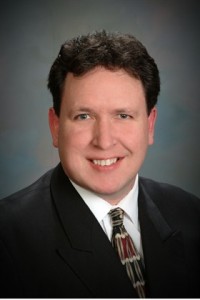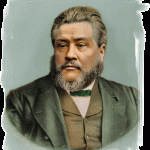 Question: Why does the Bible say that Mary Magdalene and another Mary discovered the empty tomb, while another Gospel says that only Mary did, while another says that Simon joined them? This to me seems like inaccuracies in the Bible.
Question: Why does the Bible say that Mary Magdalene and another Mary discovered the empty tomb, while another Gospel says that only Mary did, while another says that Simon joined them? This to me seems like inaccuracies in the Bible.
Lee Strobel answers:
It’s important to clarify between a biblical inaccuracy (what others often call a contradiction) and what a Gospel writer simply chose to include or emphasize in his account. A contradiction is to affirm and deny the same thing, at the same time, in the same respect. A contradiction regarding the eyewitness testimony cited would be, for instance, that “only Mary Magdalene went to the empty tomb” – something no Gospel writers say – and “Mary and the other Mary” (Matthew 28:1) went to the empty tomb.
To shed a bit more light on the biblical passage you cited, John mentions only Mary Magdalene explicitly at the tomb in his Gospel (John 20:1). But if we read carefully we see in the next verse (20:2) that Mary tells Peter, “They have taken the Lord out of the tomb but we don’t know where they have put him!” This supports the other Gospels when they say that other women went to the tomb with Mary, perhaps following closely behind. As the NIV Study Bible says, the we “indicates that there were others with Mary (see Matthew 28:1, Mark 16:1, Luke 24:10), though John does not identify them.” So when John wrote his Gospel, he only mentions one woman by name but uses the plural pronoun “we” to indicate that others were with her.
Further, if the Gospel writers, two of whom were among the Twelve disciples of Jesus, wanted to fabricate a story about the resurrected Christ, it is unthinkable that they would have put women at the tomb first. It is well established that a woman’s testimony in the ancient world was generally not considered to be credible and that they were for the most part not allowed to testify in a court of law. See, for instance, Reasonable Faith: Christian Truth and Apologetics, by William Lane Craig.
Another popular “contradiction” cited by critics involves how many angels were at the empty tomb. Some accounts mention one angel (Matthew 28:5), while others say two (John 20:12). However, a contradiction would have one account saying “only” one angel was at the tomb while another account says there were “two angels.” A closer reading of these two texts suggests that it is very plausible that Matthew focuses on the angel who spoke and “said to the women, ‘Do not be afraid’” while John focuses on how many angels the women saw; “and she saw two angels.”
Here’s a modern example of what I mean. The Chicago Bears play their arch-rival, the Green Bay Packers, twice a year during the regular season. Both major Chicago newspapers cover every game between these two teams, along with the Green Bay Press Gazette.
Will the reporter for the Chicago Tribune file the same story, report the same key events in the same order, and describe big plays all in the same way as the reporter for the Chicago Sun-Times or the Green Bay paper? Of course not. Will they agree on many key parts of the game? Yes. Yet they were all eyewitnesses to the game.
The Tribune might boldly proclaim that a key play in the second half was a forced turnover by Bears defense star Brian Urlacher, while the Chicago Sun-Times notes that Brian Urlacher and defensive lineman Julius Peppers both contributed to the tackle. Was the Tribune wrong to not include Julius Peppers assisting on the tackle? No, it was not important to the bigger story – victory of the Bears over the Packers! We can look at differences in eyewitness testimony in the Gospels the same way.
In fact, if we examine biographies of President Franklin D. Roosevelt, other Presidents, or famous men or women in history we see that some biographers choose to emphasize various things about seminal moments in their life or Presidency that other biographers do not. Different details noted by different eyewitnesses, however, does not mean that these things did not happen.

 “Think over what I say, for the Lord will give you understanding in everything.” 2 Tim 2:7
“Think over what I say, for the Lord will give you understanding in everything.” 2 Tim 2:7 The closing exhortations of Charles Spurgeon’s priceless counsel on “The Minister’s Fainting Fits” in Lectures to My Students:
The closing exhortations of Charles Spurgeon’s priceless counsel on “The Minister’s Fainting Fits” in Lectures to My Students: